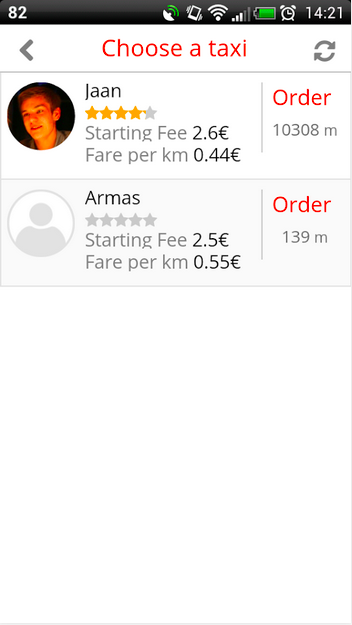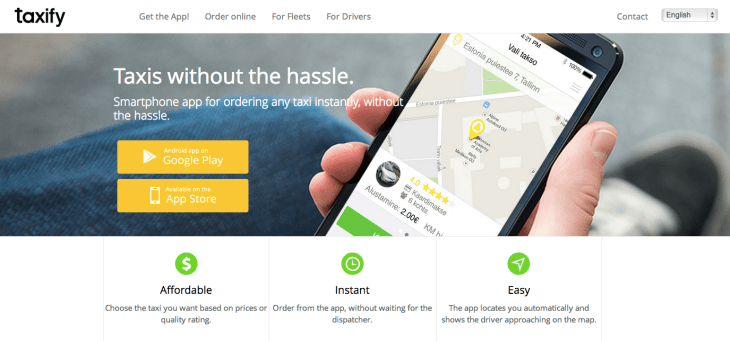Another funding round for another taxi app company — albeit this one, Estonian startup Taxify, is focusing on helping existing taxi companies fight the encroaching threat on their business from independent drivers making like cabbies with help of apps like Uber and Cabify.
Taxify has closed a $100,000 seed round, with investment coming from multiple angel investors from the U.S., Asia and Estonia, including Märt Kelder, Martin Villig and Andrus Purde (from “Skype Mafia”), Toomas Bergmann (co-founder of fleet tracking platform Navirec) and Finnish serial entrepreneur Mikko Silventola. The startup, which launched its service last fall, has previously received a €5,000 grant from Estonian Enterprise.
Taxify is currently operating in Estonia and Latvia, and said it plans to use the new funding to expand in Eastern Europe in the near term. It offers existing cab companies an all-in-one solution — including a web-based dispatcher and fleet management systems to manage their back-end. These different cab companies are then presented to the consumer within the unified Taxify app, allowing multiple taxi businesses to sit on its platform and compete (in technology terms) with tech-fueled industry upstarts like Uber.
There are still plenty of other startups also offering to sell services to get existing cab companies, though, including another Estonian player, called (confusingly enough) Taxi Startup, or the likes of GetTaxi or Kabbee, to name a few. As crowded spaces go, on-demand transport startups is a veritable rush hour.
Another differentiator vs the competition, according to Taxify’s founder Markus Villig, is that app lets the ride-booker choose a specific driver if they wish, with driver profiles including a photo, prices and feedback — rather than the user being automatically assigned a driver based on purely  algorithmic factors such as their location.
algorithmic factors such as their location.
Since launch, Taxify said it’s grown to handle more than 50,000 monthly bookings in the three cities it’s currently active in, in Estonia and Latvia (with more than 150,000 bookings in total to date). Its app has had 40,000 downloads in its first six months, and currently has around 15,000 monthly active users. The business is apparently growing at a monthly rate of 55%.
In terms of cab companies, Taxify currently has nine active within its service — with a total of 950 drivers serving its users. It also has five new taxi companies on trial, in addition to the active nine.
Taxify charges a 12-15€ per driver a month fee to the cab companies using its services. (It does also offer to sign up individual drivers to its platform, and does not charge a monthly fee for individual drivers, but rather a per client fee — however Villig says its business focus is SMEs at this point.)
It also has a local partner programme to aid its spread to new cities and to bring in another revenue stream. This uses a franchise model for setting up new local Taxify businesses, with the partner becoming a city manager and getting a revenue share.
While local partners help to build out Taxify in its current markets, Villig said the startup will be using its funding to expand to Lithuania, Sweden, Finland and Georgia in the next four months. After that he said it has “many” cities in Western Europe and Asia “currently in preparation” for launch — but declined to name any names yet.
